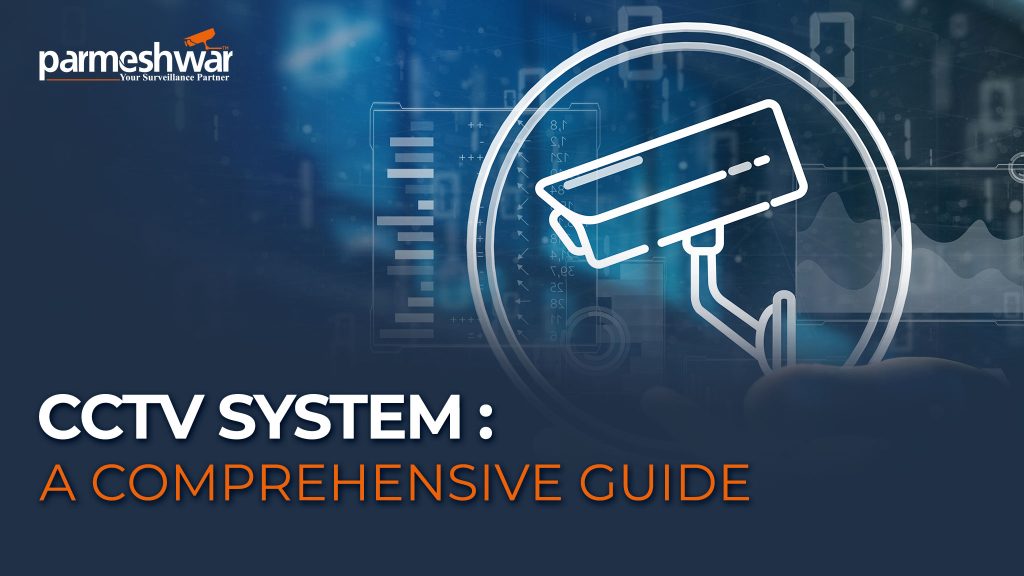
CCTV Systems: A Comprehensive Guide
Closed Circuit Television (CCTV) systems are a common security solution used to monitor and secure an area. In this article, we’ll take a closer look at the different types of CCTV systems available and the key features and benefits of each. We’ll also discuss which system is best for different scenarios and provide a summary of the pros and cons of each type of system.
Types of CCTV Systems:
There are two main types of CCTV systems: traditional systems also known as HD CCTV systems that use coaxial cables to transmit the video and audio signals, and IP CCTV systems which use Internet Protocol (IP) technology to transmit the signals over a network.
HD CCTV SYSTEMS:
Traditional CCTV systems, also known as HD CCTV systems, use high-definition cameras to capture clear, detailed images. These systems can be equipped with features such as pan, tilt, and zoom (PTZ) functionality, which allows security personnel to move the cameras remotely to get a better view of the area being monitored. They can also be integrated with other security systems, such as access control systems and alarm systems, to provide a comprehensive security solution.
IP CCTV SYSTEMS:
IP CCTV systems offer several advantages over traditional systems. They can transmit higher-quality video and audio signals due to the larger bandwidth available on an IP network, and they can be accessed and controlled remotely using a computer or smartphone with an Internet connection. In addition, IP CCTV systems can be integrated with other security systems, such as access control systems and alarm systems, to provide a comprehensive security solution.
Which System is Best for Different Scenarios:
The best CCTV system for a particular scenario will depend on a number of factors, including the size of the area being monitored, the desired level of security, and the budget.
For smaller installations, traditional CCTV systems (HD CCTV System) may be a cost-effective solution that provides high-quality video footage. However, for larger installations or applications that require remote access and control, an IP CCTV system may be a better choice.
Other Factors to Consider:
In addition to the type of CCTV system, there are other factors to consider when choosing a CCTV system for your location. Some of these factors include:
Camera placement: The placement of cameras is crucial to ensure effective surveillance coverage of the area being monitored. Consider the location and number of cameras needed to cover blind spots and sensitive areas.
Storage: CCTV systems generate a large amount of data, which needs to be stored for future reference. Consider the storage capacity and backup options available, such as using a digital video recorder (DVR) or a network video recorder (NVR).
Lighting: Good lighting is essential for CCTV cameras to capture clear and detailed images. Consider the lighting conditions in the area being monitored and choose cameras with appropriate low light sensitivity.
Resolution: Higher resolution cameras will provide better quality images, but they may also require more storage space and be more expensive. Consider the trade-off between image quality and cost when choosing the camera resolution.
Compatibility: If you are planning to integrate your CCTV system with other security systems, such as access control or alarm systems, ensure that the systems are compatible.
Maintenance: Regular maintenance is important to ensure that your CCTV system is functioning properly. Consider the cost and ease of maintenance when choosing a system.
Legal considerations: In some countries, there may be laws and regulations governing the use of CCTV systems. Ensure that you are familiar with any legal requirements and obtain any necessary licenses or permits before installing a CCTV system.
Conclusion :
In summary, CCTV systems are a widely used security solution for monitoring and securing an area. There are two main types of CCTV systems available: traditional systems and IP CCTV systems. Traditional systems use coaxial Cables to transmit video and audio signals, while IP CCTV systems use Internet Protocol technology to transmit signals over a network. Both types of systems have their own unique features and benefits, and the best system for a particular scenario will depend on the specific needs and requirements of the installation. In addition to the type of system, there are several other factors to consider when choosing a CCTV system, including camera placement, storage, lighting, resolution, compatibility with other security systems, maintenance, and legal considerations.
Share on Social Media
Checkout Video Tutorial
Share On Social Media
We Provide the Best Service in Industry
This is what our customer say…Check out yourself what they have experience.